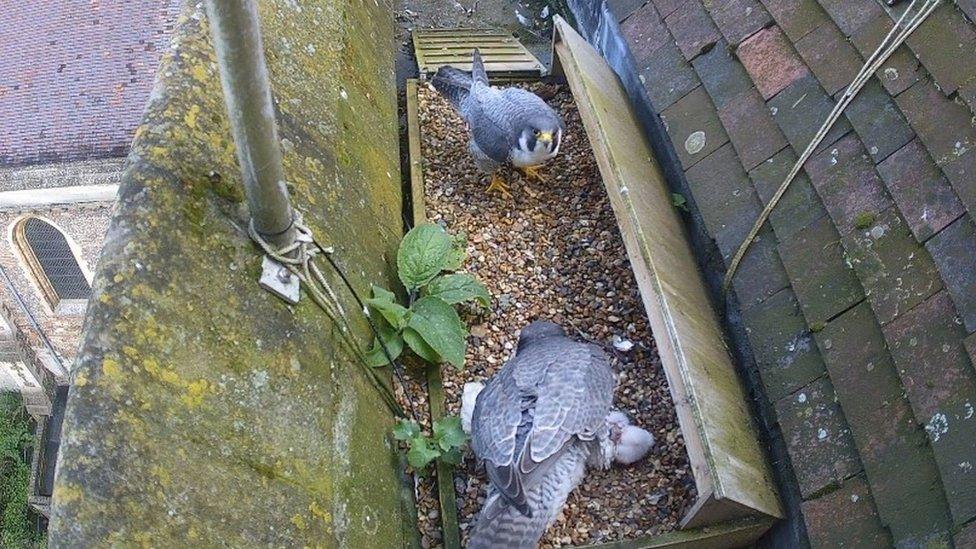Falcons return to cathedral for third year in a row
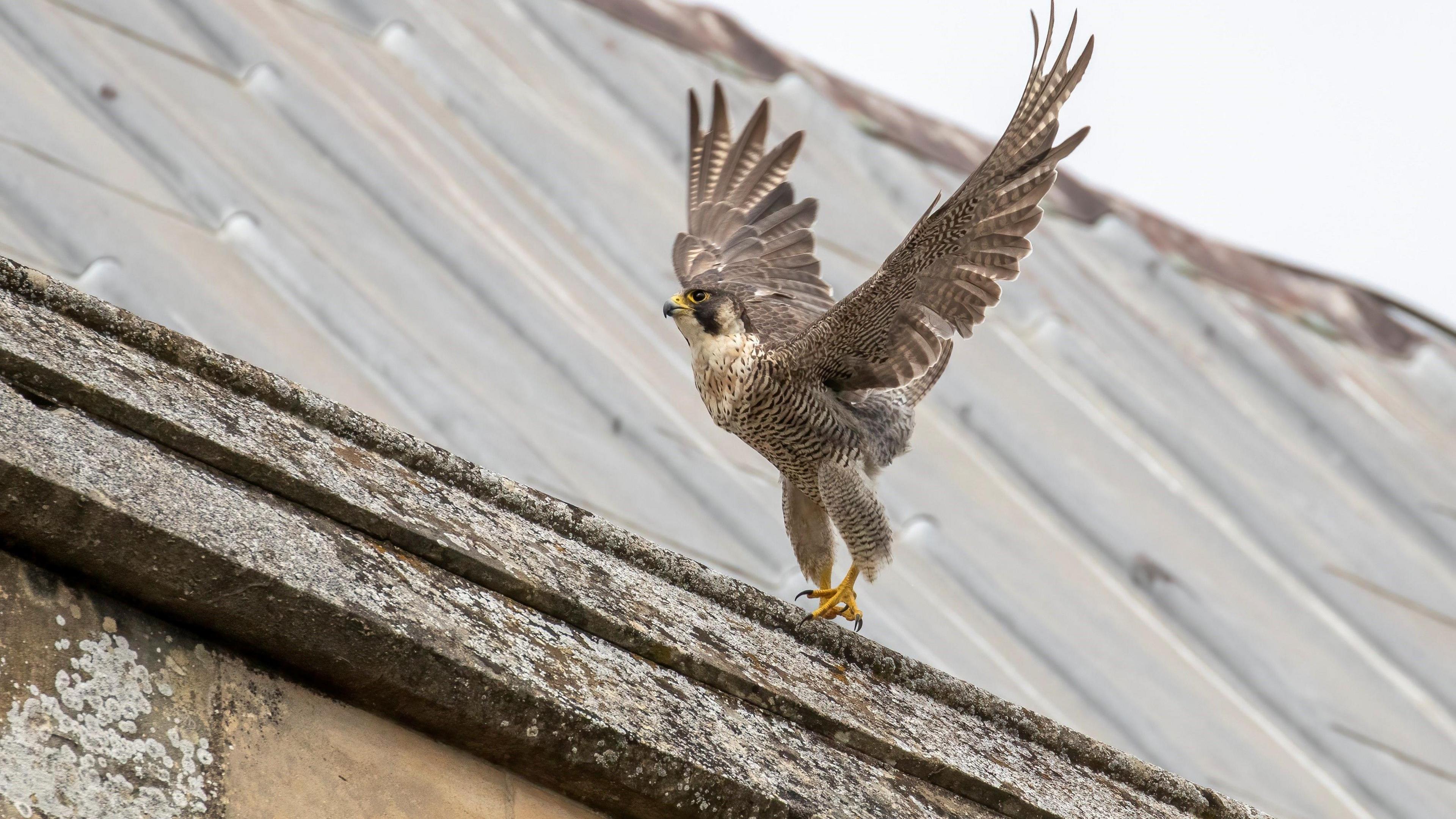
The birds of prey have a grey plumage, white face and a black moustache
- Published
A pair of peregrine falcons that had a chick in 2022 have returned to their cathedral nesting site for the third year in a row.
About 378,000 viewers watched the couple on the St Albans Cathedral website via a webcam in 2023.
The birds of prey are one of only five breeding pairs in Hertfordshire.
The falcons often remain loyal to their nest site each year, which meant the cathedral was now an established breeding ground.
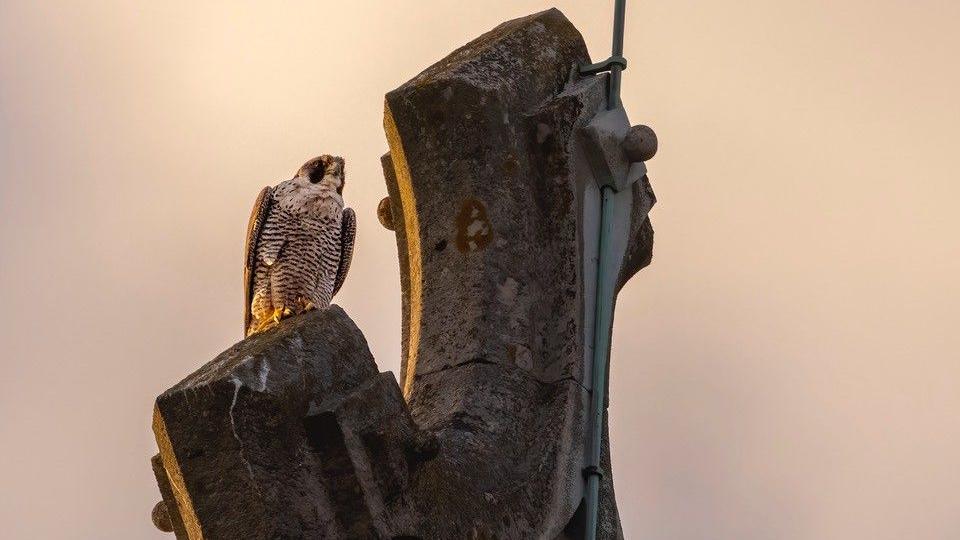
The pair have been spotted near the cathedral since early spring
Barry Trevis, who studied breeding peregrine falcons across Hertfordshire, said the couple have not laid an egg yet.
"The peregrines will hopefully lay this week... They could be hatching by the end of April," he said.
The licensed bird ringer explained the birds "historically nest on mountain crags and cliff faces".
To simulate that environment, he installed a nesting tray with shingles, at a height of about 40 metres, on the cathedral roof.
He said the birds enjoyed the site as "there's lots of prey items around in the form of feral pigeons".
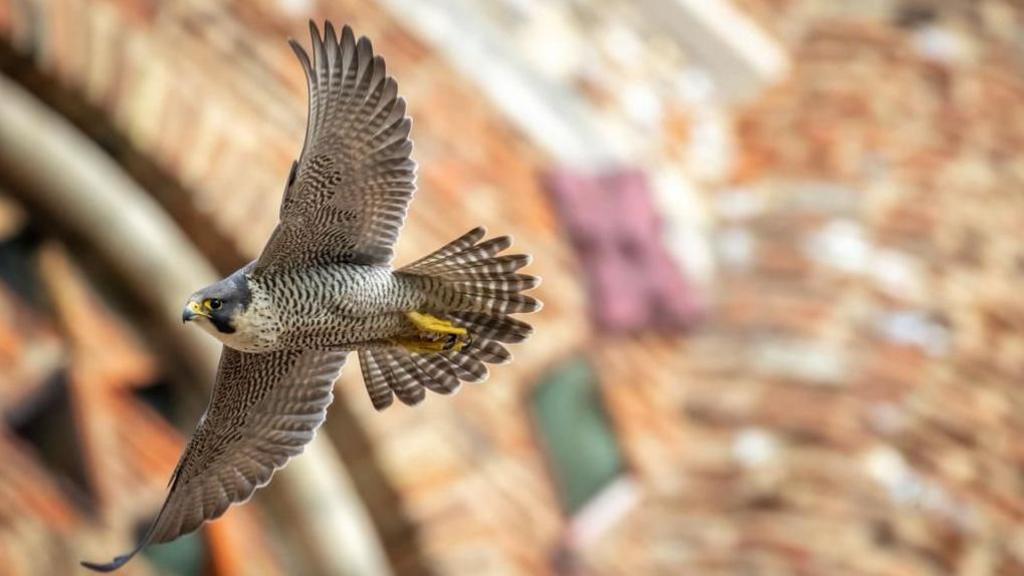
Peregrine falcons normally mate for life
Heidi Mansell, engagement manager at Herts and Middlesex Wildlife Trust said: “It’s been wonderful that since the tray’s installation, we’ve all been on a journey where we have seen four chicks successfully fledge the nest."
She explained that the webcam "gives everyone a chance to see the wonders of nature".
Ms Mansell added: "There has been so much interest in the birds, it’s great to know that we’ll be able to get a close-up view of their antics once again and I’m hopeful that we will see more chicks in 2024.”
Dean of St Albans, Jo Kelly-Moore, said the nest was "a room with a good view".
She added: "This gives up hope for the beauty of creation and we certainly need some of that hope today."
The webcam, which was installed last year, has been activated for viewers to watch the birds as they prepared to lay an egg.
Follow East of England news on Facebook, external, Instagram, external and X, external. Got a story? Email eastofenglandnews@bbc.co.uk, external or WhatsApp us on 0800 169 1830
- Published25 May 2022
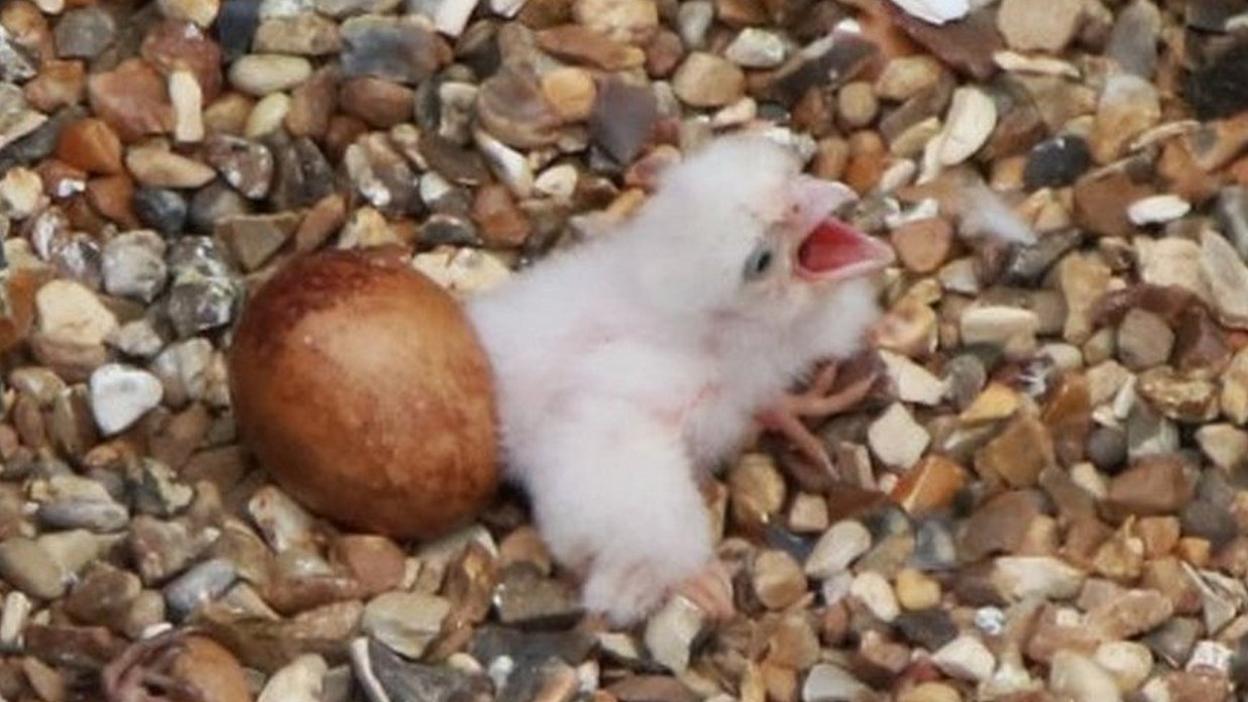
- Published11 May 2023
